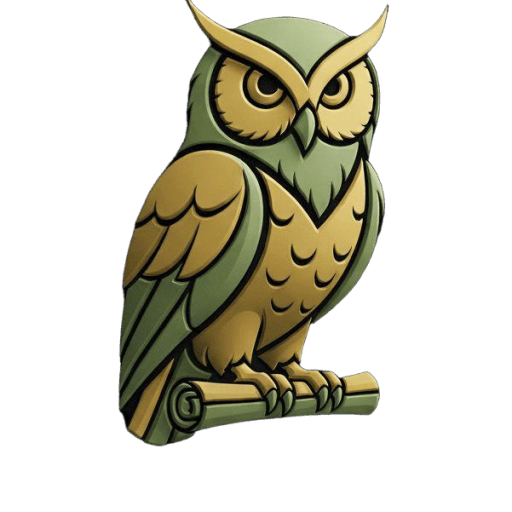TRABALHOS ACADÉMICOS
Pedagogia
A Pedagogia desempenha um papel fundamental na formação de indivíduos e sociedades, centrando-se no ensino e na aprendizagem ao longo da vida. A seleção de livros abaixo inclui obras que exploram as teorias educativas, as metodologias de ensino, a gestão escolar e as práticas pedagógicas inovadoras. Essencial para os educadores, para os pesquisadores e para os gestores da educação, esta bibliografia apresenta um olhar aprofundado sobre a construção do conhecimento e o papel da escola na sociedade.
Alexander, R. (2008). Essays on pedagogy. Routledge.
Arends, R. I. (2014). Learning to teach (10th ed.). McGraw-Hill.
Ausubel, D. P. (1968). Educational psychology: A cognitive view. Holt, Rinehart & Winston.
Bandura, A. (1977). Social learning theory. Prentice-Hall.
Banks, J. A. (2019). Multicultural education: Issues and perspectives (10th ed.). Wiley.
Baquero, R. (1996). Vygotsky y el aprendizaje escolar. Aique.
Barr, R., & Tagg, J. (1995). From teaching to learning: A new paradigm for undergraduate education. Change: The Magazine of Higher Learning, 27(6), 12-26.
Berliner, D. C., & Calfee, R. C. (Eds.). (2013). Handbook of educational psychology (2nd ed.). Routledge.
Bernstein, B. (2000). Pedagogy, symbolic control, and identity: Theory, research, critique. Rowman & Littlefield.
Biggs, J., & Tang, C. (2011). Teaching for quality learning at university (4th ed.). Open University Press.
Bloom, B. S. (1956). Taxonomy of educational objectives: The classification of educational goals. Longmans.
Bourdieu, P., & Passeron, J.-C. (1990). Reproduction in education, society and culture (2nd ed.). SAGE Publications.
Bransford, J. D., Brown, A. L., & Cocking, R. R. (Eds.). (2000). How people learn: Brain, mind, experience, and school (Expanded ed.). National Academy Press.
Brunner, J. J. (2011). Educación superior en América Latina: Un espacio de oportunidades. CEPAL.
Bruner, J. S. (1960). The process of education. Harvard University Press.
Bruner, J. S. (1983). Child’s talk: Learning to use language. Norton.
Carmo, H. (1994). Métodos de ensino: Teorias e práticas pedagógicas. Edições Pedagógicas.
Chickering, A. W., & Gamson, Z. F. (1987). Seven principles for good practice in undergraduate education. AAHE Bulletin, 39(7), 3-7.
Coll, C., Palacios, J., & Marchesi, A. (Eds.). (2001). Desenvolvimento psicológico e educação (Vol. 2). Artmed.
Coll, C., & Martín, E. (2013). Psicologia da educação virtual: Aprender e ensinar com as tecnologias da informação e comunicação. Artmed.
Dewey, J. (1916). Democracy and education: An introduction to the philosophy of education. Macmillan.
Dewey, J. (1938). Experience and education. Macmillan.
Díaz, F., & Hernández, G. (2010). Estrategias docentes para un aprendizaje significativo (4th ed.). McGraw-Hill.
Duarte, N. (2002). A individualidade para si: Contribuição a crítica da pedagogia histórico-crítica sobre a individualidade na educação escolar. Autores Associados.
Epstein, J. L. (2011). School, family, and community partnerships: Preparing educators and improving schools (2nd ed.). Routledge.
Erikson, E. H. (1950). Childhood and society. Norton.
Feldman, R. S. (2017). Development across the life span (9th ed.). Pearson.
Ferguson, R. (2018). The talent code: Unlocking the secret of skill in mathematics, music, and sports. Wiley.
Ferrer, J. G. (2008). La pedagogía crítica: Un horizonte educativo. Editorial Popular.
Foucault, M. (1975). Discipline and punish: The birth of the prison. Pantheon Books.
Freire, P. (1967). Educação como prática da liberdade. Paz e Terra.
Freire, P. (1970). Pedagogia do oprimido. Paz e Terra.
Freire, P. (1996). Pedagogia da autonomia: Saberes necessários à prática educativa. Paz e Terra.
Fullan, M. (2011). Change leader: Learning to do what matters most. Wiley.
Gardner, H. (1983). Frames of mind: The theory of multiple intelligences. Basic Books.
Gardner, H. (1999). Intelligence reframed: Multiple intelligences for the 21st century. Basic Books.
Giroux, H. A. (2011). On critical pedagogy. Bloomsbury.
Good, T. L., & Brophy, J. E. (2007). Looking in classrooms (10th ed.). Pearson.
Goleman, D. (1995). Emotional intelligence: Why it can matter more than IQ. Bantam Books.
Hargreaves, A., & Fullan, M. (2012). Professional capital: Transforming teaching in every school. Teachers College Press.
Illich, I. (1971). Deschooling society. Harper & Row.
Knowles, M. S. (1980). The modern practice of adult education: From pedagogy to andragogy. Cambridge Adult Education.
Kolb, D. A. (1984). Experiential learning: Experience as the source of learning and development. Prentice-Hall.
Leontiev, A. N. (1978). Activity, consciousness, and personality. Prentice-Hall.
Lévy, P. (1997). Collective intelligence: Mankind’s emerging world in cyberspace. Perseus Books.
Libâneo, J. C. (1994). Didática. Cortez.
Luria, A. R. (1973). The working brain: An introduction to neuropsychology. Basic Books.
Maturana, H., & Varela, F. (1987). The tree of knowledge: The biological roots of human understanding. Shambhala.
Moll, L. C. (Ed.). (2014). L. S. Vygotsky and education. Cambridge University Press.
Morin, E. (2001). Os sete saberes necessários à educação do futuro. Cortez.
Papert, S. (1980). Mindstorms: Children, computers, and powerful ideas. Basic Books.
Perkins, D. (2009). Making learning whole: How seven principles of teaching can transform education. Jossey-Bass.
Piaget, J. (1929). The child’s conception of the world. Routledge & Kegan Paul.
Piaget, J. (1950). The psychology of intelligence. Routledge & Kegan Paul.
Perrenoud, P. (1999). Construir competências desde a escola. Artmed.
Saviani, D. (2005). História das ideias pedagógicas no Brasil. Autores Associados.
Tardif, M. (2002). Saberes docentes e formação profissional. Vozes.
Tyack, D., & Cuban, L. (1995). Tinkering toward utopia: A century of public school reform. Harvard University Press.
Vygotsky, L. S. (1978). Mind in society: The development of higher psychological processes. Harvard University Press.
Zabalza, M. A. (2004). Qualidade na educação superior. Artmed.

